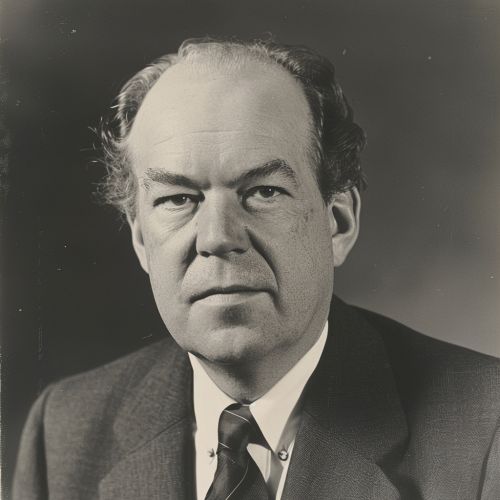Geoffrey Dummer
Early Life
Geoffrey William Arnold Dummer was born on 25 February 1909 in Hull, England. He was the son of a sea captain and was educated at the Hull Grammar School. He showed an early interest in electronics and radio, and after leaving school, he joined the Admiralty as an apprentice in 1925.
Education
Dummer studied at the City and Guilds of London Institute, where he specialized in radio communication and radar. He graduated in 1931 with a degree in electrical engineering. He continued his studies and research in the field of electronics and radar, contributing to the development of radar technology during the Second World War.
Career
In 1935, Dummer joined the Telecommunications Research Establishment (TRE), where he worked on the development of radar systems. During the Second World War, he was involved in the design and development of airborne radar systems, which played a crucial role in the war effort.
After the war, Dummer continued to work at the TRE, where he became a leading figure in the development of solid-state electronics. He is best known for his work on the concept of the Integrated Circuit (IC), which he first proposed in 1952. Although his idea was initially met with skepticism, it was later realized by Jack Kilby and Robert Noyce, who are often credited with the invention of the IC.
Dummer continued to promote the use of ICs throughout his career, contributing to their widespread adoption in the electronics industry. He also worked on the development of other electronic components and systems, including transistors, diodes, and microprocessors.
In addition to his work at the TRE, Dummer was also a prolific writer and lecturer. He authored numerous books and papers on electronics and was a frequent speaker at conferences and seminars. He was also involved in the establishment of the Institution of Engineering and Technology (IET), serving as its president from 1965 to 1966.
Later Life and Legacy
Dummer retired from the TRE in 1966, but he remained active in the field of electronics. He continued to write and lecture on the subject, and he served as a consultant to various companies and organizations. He was awarded the IEEE Medal of Honor in 1981 for his contributions to the development of the IC.
Dummer passed away on 9 September 2002, but his legacy lives on in the field of electronics. His work on the IC has had a profound impact on the electronics industry, and his contributions to the field have been recognized with numerous awards and honors.
See Also
- History of the Integrated Circuit
- Telecommunications Research Establishment
- Institution of Engineering and Technology
- IEEE Medal of Honor


